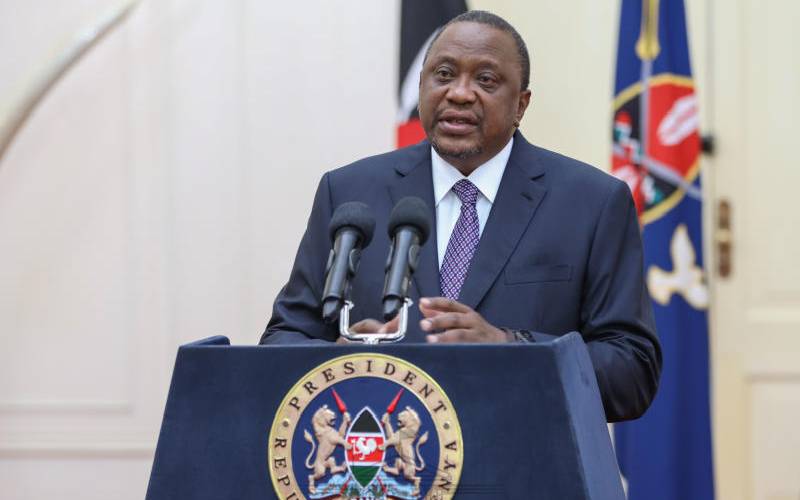
President Uhuru Kenyatta conveys his remarks in a recorded video statement delivered during the virtual General Debate of the 75th session of the UN General Assembly.
Justice Weldon Korir this week closed the “does Shall mean Must” debate in which every Kenyan had become an expert on constitutional and statutory interpretation; with obviously predetermined views. As a friend once told me, we Kenyans do not see things as they are, we see things as we are. It all started when the Chief Justice, threw the country a curve ball; advising the President to dissolve Parliament.